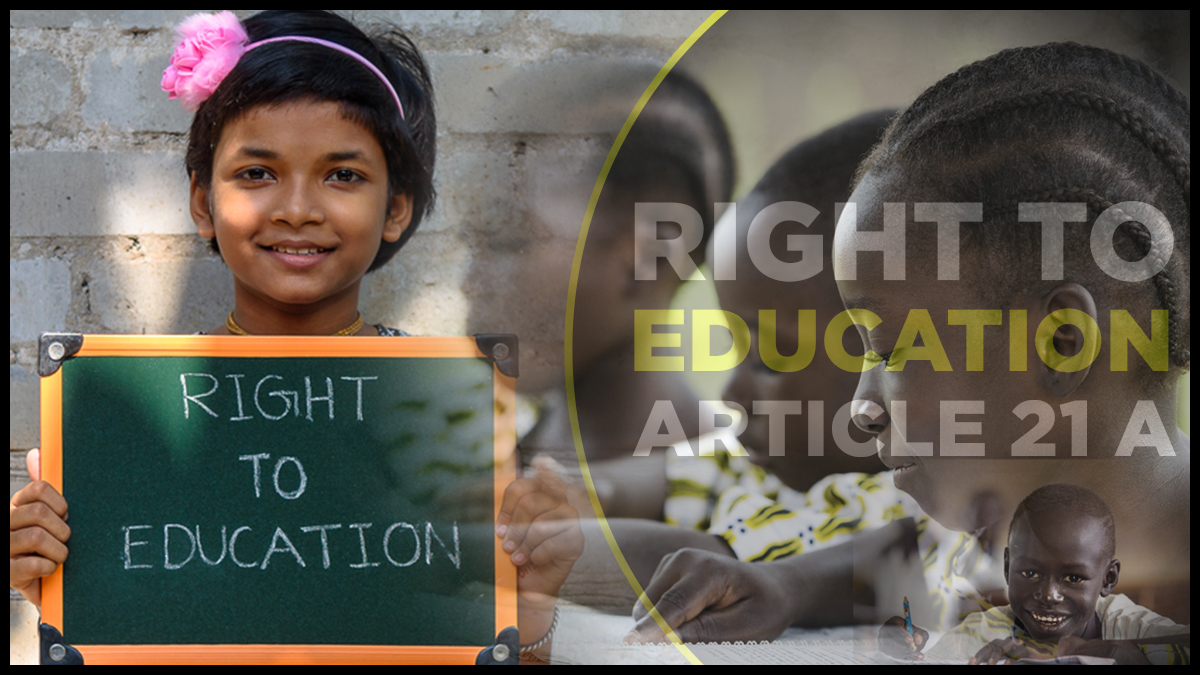
The Right to Education (RTE) is a fundamental right guaranteed by the Indian Constitution under Article 21A. The Right to Education Act was enacted in 2009 to ensure that every child in India has access to free and compulsory education from the age of six to fourteen.
Here are some important points about the RTE in India:
Compulsory education: The RTE Act makes it mandatory for the government to provide free. And compulsory education to all children between the ages of six and fourteen.
No discrimination: The RTE Act prohibits discrimination on the basis of gender, caste, religion, or disability.
Reservation: The Act provides for a reservation of 25% seats in all private schools for children from economically weaker sections and disadvantaged groups.
Infrastructure: The Act mandates that every school should have certain basic facilities such as toilets, drinking water, playgrounds, and libraries.
Curriculum: The Act also lays down guidelines for the curriculum, teaching methods, and teacher training.
Implementation: The RTE Act is implemented by the respective state governments. And they are responsible for ensuring that all children in their state receive free and compulsory education.
Monitoring: The National Commission for Protection of Child Rights (NCPCR) is responsible for monitoring the implementation of the RTE Act across the country.
The Right to Education is an important step towards ensuring that every child in India has access to education and can realize their full potential.
Here are some additional details about the Right to Education in India:
Funding: The central government and the state governments share the responsibility of funding the implementation of the RTE Act. The central government provides financial assistance to the states for the construction of schools, provision of infrastructure. And training of teachers.
Teacher-student ratio: The RTE Act mandates that there should be one teacher for every thirty students at the primary level. And one teacher for every thirty-five students at the upper primary level.
No detention policy: The RTE Act has a no-detention policy which means that no child can be detained in any class till the completion of elementary education (up to class 8). However, this policy has been controversial and there have been calls to review and amend it.
Also Read – Troubleshooting Common Car Problems
Quality of education: While the RTE Act has made access to education a fundamental right. And there have been concerns about the quality of education being provided. Some of the challenges include lack of infrastructure, shortage of qualified teachers, and poor implementation of the curriculum.
Also Read – All about Zee Entertainment Enterprises
Awareness: Despite the legal provisions, there is still a lack of awareness among parents. And children about the Right to Education. This has led to a low enrollment rate in some areas, particularly among marginalized communities.
Overall, the Right to Education is an important step towards achieving universal education in India. However, there is a need for continued efforts to ensure that every child not only has access to education. But also receives a quality education.
Also Read – Guide to Troubleshoot Smartphones

2 thoughts on “All about Right to Education”